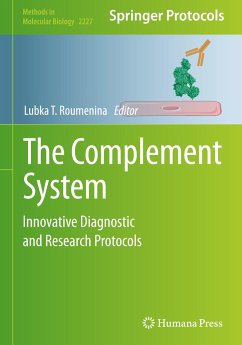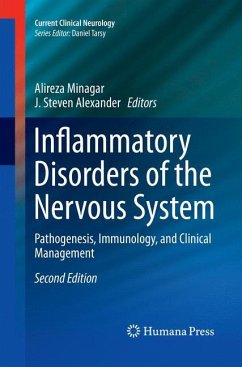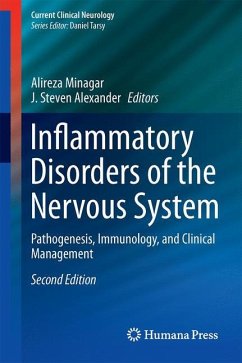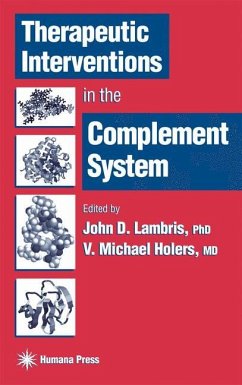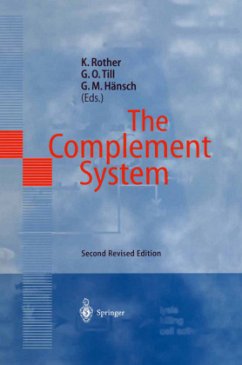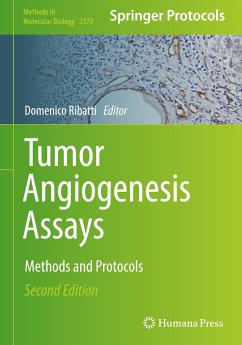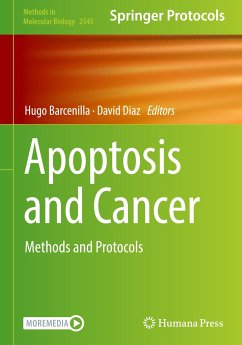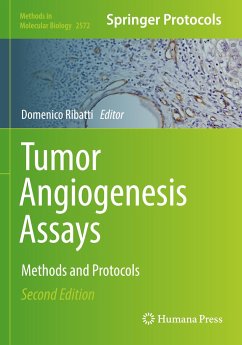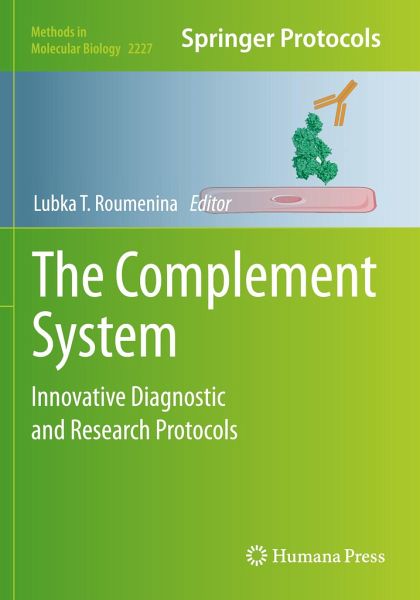
The Complement System
Innovative Diagnostic and Research Protocols
Herausgegeben: Roumenina, Lubka T.
Versandkostenfrei!
Versandfertig in 6-10 Tagen
87,99 €
inkl. MwSt.

PAYBACK Punkte
44 °P sammeln!
This volume describes a range of methods used in complement laboratories and how to interpret the data. Chapters detail methods for depletion of IgG and IgM, quantification of complement proteins, C3dg quantification, complement C3 deposition on endothelial cells, anti-C1q auto-antibodies, and methods for assessment of interactions of proteins with heme. Written in the highly successful Methods in Molecular Biology series format, chapters include introductions to their respective topics, lists of the necessary materials and reagents, step-by-step, readily reproducible laboratory protocols, and...
This volume describes a range of methods used in complement laboratories and how to interpret the data. Chapters detail methods for depletion of IgG and IgM, quantification of complement proteins, C3dg quantification, complement C3 deposition on endothelial cells, anti-C1q auto-antibodies, and methods for assessment of interactions of proteins with heme. Written in the highly successful Methods in Molecular Biology series format, chapters include introductions to their respective topics, lists of the necessary materials and reagents, step-by-step, readily reproducible laboratory protocols, and tips on troubleshooting and avoiding known pitfalls.
Cutting-edge and clearly written, The Complement System: Innovative Diagnostic and Research Protocols aims to ensure successful results in the further study of this vital field.
Cutting-edge and clearly written, The Complement System: Innovative Diagnostic and Research Protocols aims to ensure successful results in the further study of this vital field.





